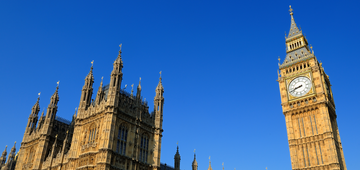RSPH has welcomed the implementation of the UK’s landmark Soft Drinks Industry Levy – commonly known as the ‘Sugar Tax’ – which came into force on 6 April 2018
This marks the introduction of a charge of 18p per litre to be paid by soft drinks manufacturers on all drinks with added sugar and total sugar content of five grams or more per 100 millilitres (equating to about 5% sugar content or more). Drinks that contain eight grams or more per 100 millilitres (about 8% sugar content) will pay a higher charge of 24p per litre.
Sugar consumption is a major contributing factor to obesity throughout the lifecourse, with sugary drinks accounting for 30% of 4-10 year olds’ daily sugar intake. Evidence from a 2016 modelling study has found that the levy could potentially lead to 144,000 fewer adults and children with obesity every year.
The levy has already proven effective in its key goal of encouraging manufacturer reformulation, with Public Health Minister Steve Brine reporting that nearly half of the soft drinks market has been proactive in reducing sugar in their products to avoid charges. This has been reflected in the revenue expected from the levy falling by almost half, from £500m a year when it was first announced to £275m at the end of 2017.
RSPH is now calling for a wider package of measures, including tougher regulation of advertising and marketing of high fat, salt and sugary foods to children, and for the government to ensure that existing commitments outlined in the current Childhood Obesity Plan, including clearer food labelling, are delivered in full and comprehensively evaluated.
Shirley Cramer CBE, Chief Executive, RSPH, said: “We are delighted to welcome the introduction of the Soft Drinks Industry Levy as a key measure in tackling the UK’s obesity crisis. What has been hugely encouraging to see are the steps that have already been taken by many leading manufacturers in response, to reformulate their products and help consumers reduce their sugar consumption.
“With the UK suffering one of the highest levels of childhood obesity in Europe, we hope the introduction of the Levy will form part of a more ambitious obesity policy from the Government. Whilst this marks significant progress, to tackle the obesity epidemic we face, no single measure will be effective in isolation. The Levy needs to form part of a much wider and more cohesive approach and package of measures over a sustained period of time, including improved regulation to combat the advertising of high fat, salt and sugar foods.”



